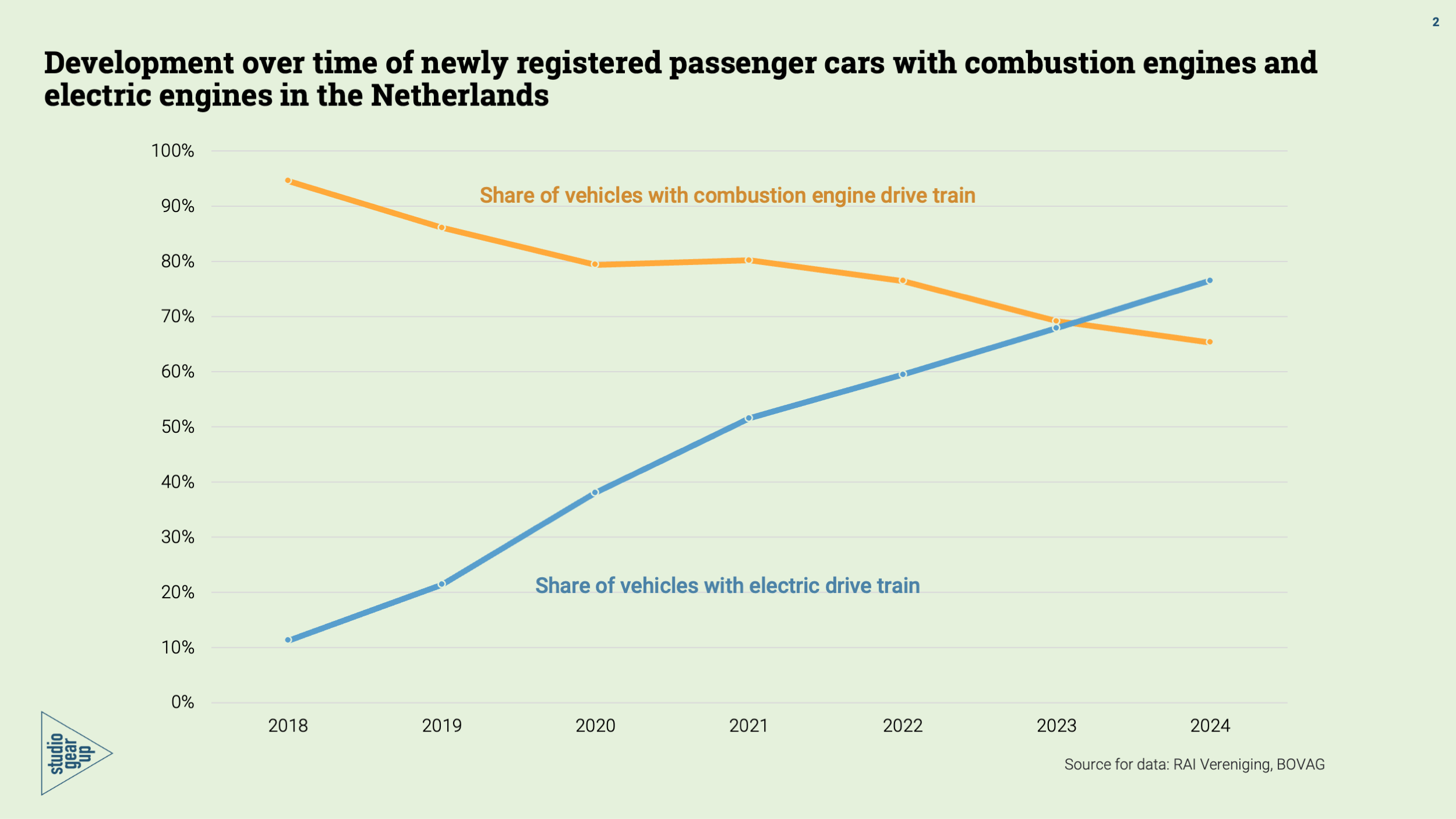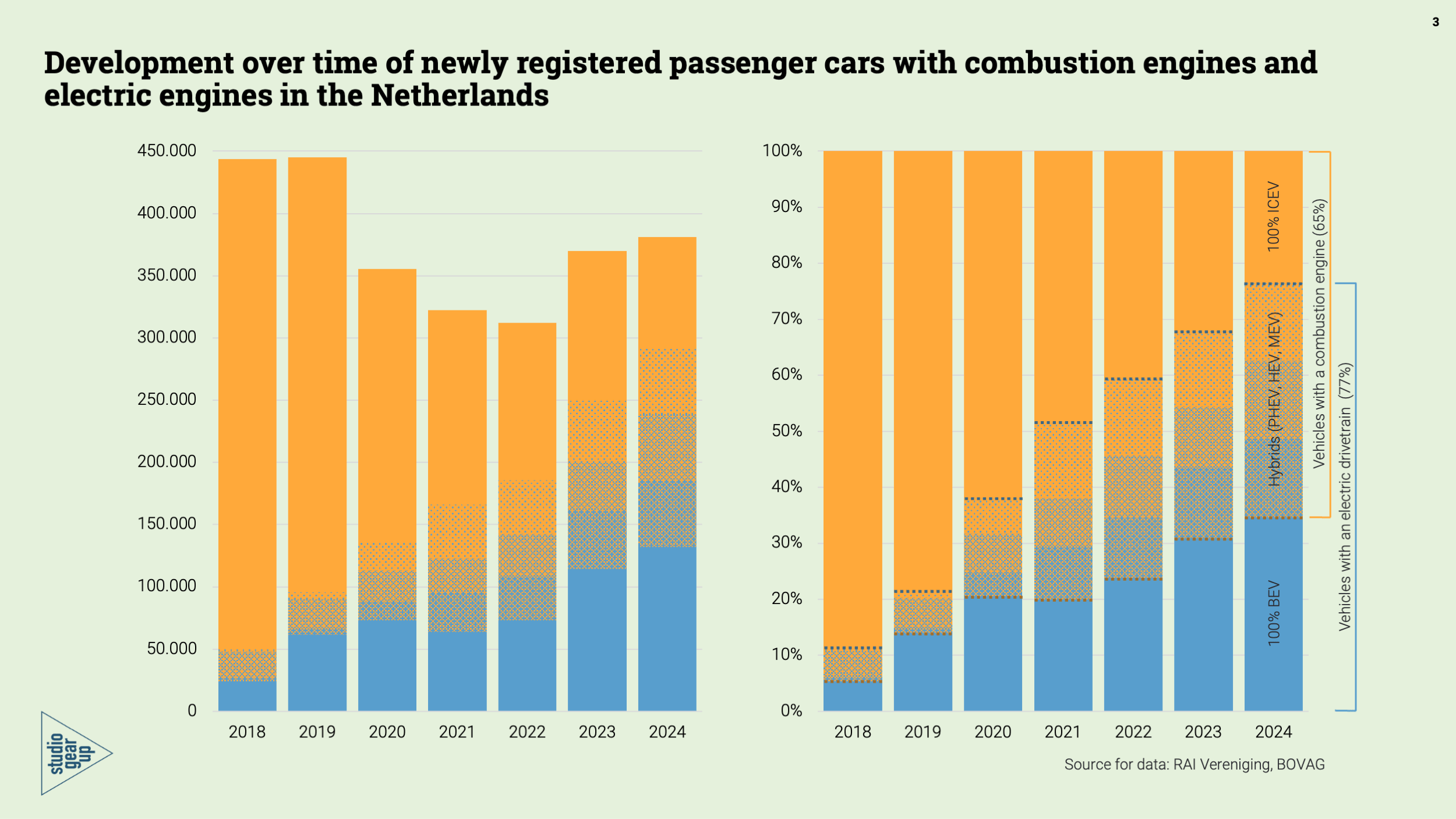2024 is a pivotal year in new passenger car sales in the Netherlands. For the first time, new sales of vehicles with an electric drive train outperform new sales of vehicles with an internal combustion engine.
77%, more than 3 out of 4, of all new registered passenger cars in the Netherlands were equipped with an electric drivetrain, being either a full battery electric engine or a hybrid type (mild hybrid, full hybrid or plug-in hybrid). See Figure 1.
Only 65% of the new cars are based on a internal combustion engine, and the majority of these come in some kind of hybrid version. (see also Figure 2).
This new situation is caused by the continuous growth of full electric vehicles sales (now ± 35%), but is in particular due to the fact that the sales of hybrid vehicles keeps growing rapidly (± 45% share in 2024). Sales of passenger cars with only an internal combustion engine has dropped to approx. 25% and mainly being gasoline cars.
The sales of full electric vehicles is mainly caused by the business lease market. It might be that other customers that buy new cars prefer a more incremental than disruptive transition and choose for hybrid versions, until more affordable full electric vehicles with sufficient radius become available.
A more detailes analysis of the new registrations of passenger cars in the Netherlands will follow.
For analyses on 2023 and earlier see bottom of blog.

Figure 1. Development of the share in registrations of new passenger with an internal combustion engine and with an electricity drive train from 2018-2024. (Source data: BOVAG, RAI Vereniging, graph by studio Gear Up). see for 2024 information here.

Figure 2. Actual registration numbers (left) and relative share of registration (at right) of passenger cars in the Netherlands 2018-2024 (Source data: BOVAG, RAI Vereniging, graph by studio Gear Up)



